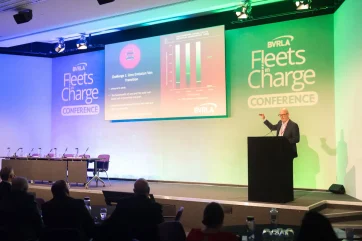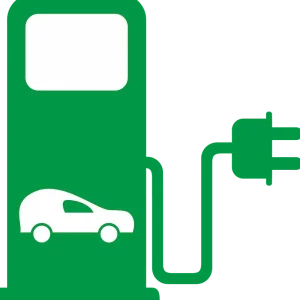
Fleets are still facing multiple issues with electric van adoption, which have contributed to falling registrations of the vehicles, according to the BVRLA.
The organisation has highlighted electric van concerns in its latest Road to Zero Report, which analyses its members’ progress towards fleet electrification.
BVRLA director of corporate affairs Toby Poston, introducing the report at the organisation’s Fleets in Charge conference, said: “The red light is flashing really hard and bright on the van market. [Electric] van registrations are down on last year, which I think no one really expected and isn’t where we want to be.
“There are continued issues with the functionality of these vehicles, their cost of ownership, competitiveness, and a lot around charging. Still operators are quite disappointed with the lack of van accessibility, the fact they can’t book spaces, and also the fact that there’s a lot of emphasis on really fast ultra-rapid chargers, which vans can’t take advantage of because they don’t have that functionality.”
Also speaking at the conference, BVRLA chief executive Gerry Keaney said: “The van community is a very diverse market. They have issues in terms of the bespoke nature of the vans, so there’s an issue on the supply side – [are] there vans available to meet specific needs?
“The vans are still too expensive. The government needs, I think, to look at that in terms of supporting the growth objective they have, and think ‘we need to get more EV vans on the road’.”
Fleet manager concerns
During the conference, a panel discussion among fleet managers was also hosted, which largely focused on van-related issues.
Centrica director of fleet operations Rob Simister said: “The biggest challenge with electric commercial vehicles is productivity. If you cannot [charge] the vehicle overnight, so it’s ready to work in the morning … then you are introducing additional downtime, which if you’re running a business costs money.”
Clarion Response fleet manager Colin Hutt said: “We’ve got 900 or so LCVs, the majority driven by plumbers, carpenters, electricians that maintain our properties.
“In terms of productivity, not everyone has the ability to charge overnight. To have someone having to stop during the day to charge, that means we’re disappointing our tenants because they’re not getting a repair done that they should have done because the guy has had to stop and charge.
“For me as a fleet manager, I’m stuck in the middle a little bit. On one side I’ve got our sustainability team, manufacturers, pushing EVs at me, and on the other side I’ve got operations saying we can’t have them because they stop us doing our work effectively, and I’ve got finance telling me they’re too expensive.”





